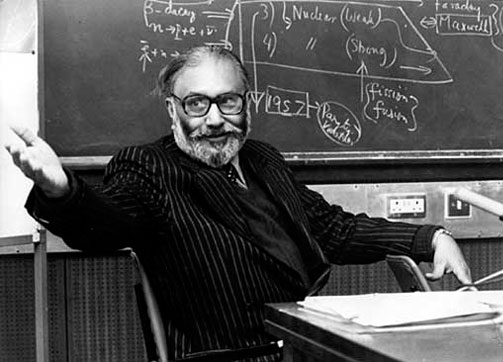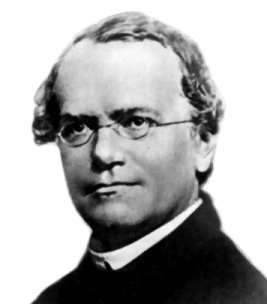
Contemporary science has not ceased with its reasoning to pervade research institutions working together in a unified intellectual reasoning (and under an overarching objectivity), and extends to the evaluation, acceptance and display of scientific achievement. Contemporary science relies on a complex paradigm that starts with scientific thinking but does not stop once it has developed scientific methodology or a scientific mode of publishing.[1]
THE PARADIGM of contemporary science is an intellectual paradigm manifested in scientific thought and its research and professional paradigms. These represent its social aspect – the institutions of publishing and scientific evaluation. All these research paradigms work within a specific mode that ensures relevance, fluency and certainty. The building and development of this scientific paradigm took place over centuries of shared international effort, so there can be no partisan claims to it made by any race or nation. It is, rather, a construction that illustrates mankind’s intellectual creativity. If it were possible to ideologize science others would certainly not have been slow to do so!
The current scientific paradigm is not what it was in the past when the ancients described sciences or philosophy as Greek or Indian or Persian. Today what is called ‘western sciences’ do not exist except in the minds of those who live in the past. Science as a human paradigm stands above race, class or religion. In that respect science differs from technology since the latter seeks to make use of scientific achievement in the interest of a society in order to produce what it wants. Here is where the difference is at its most patent. In the same way, science differs from art which itself reflects the culture of a society. After all this, one may ask the question: what possibility is there of Islamizing scientific reasoning? Or Islamizing mathematics for that matter? Both mathematics and science are precise reasoning methodologies. One can talk about the Islamization of the tax system or the Islamization of the economy, since these are similar to technology with its applied wings. Just as China produces for Muslims technology that offers Islamic services such as the times of prayer or water taps for performing wudū’ [ritual washing], or manufactures watches telling local time. But can one really talk of Islamizing physics or chemistry?
Religious thought’s problem with knowledge is that it does not want there to be a conflict between faith (belief) and scientific knowledge of facts. This problem is not a purely Islamic one and is shared by the three celestial religions. But the separation of church and state has led in the West to the freedom of scientific activity[2] and thence to the efflorescence of science. Scientific knowledge sets out from a starting point of ignorance and doubt and from there seeks to attain to knowledge and certainty by a process of hypothesis and experimentation.
Science as a human paradigm stands above race, class or religion
The problem arises when the results of the research do not agree with sanctified preconceptions. This is what happened with Darwin’s theory. Despite the fact that Darwin was religious, the results of his research nevertheless led him to dispense with the sacred explanation for life on earth. The church today may not agree with some scientific propositions, but the church has its own scholars and the scientific community also has its own.
Many Islamic thinkers are opposed to employing doubt with respect to the Holy Text, even if this is done for the sake of knowledge. But the Qur’ān treats the story of the faith of the Prophet Abraham as beginning from a starting point of doubt, followed by his conducting of material experiments until arriving at metaphysical truth. Doubt might become acceptable if it came as the result of an applied research on the Holy Text. Many Muslim thinkers tried, and still try, to propose a theory of knowledge that harmonizes with Islamic thought, and in this respect they differ in no wise from other thinkers and philosophers. The knowledge paradigm in which the human brain operates is the same for all mankind, for all the difference in theories held by thinkers and scholars concerning the act of knowing.
So a scientific truth which an American thinker arrives at, a Russian thinker can just as well arrive at too. There are many examples of this, since scientific truth is one. Indeed, different theories of knowledge may be proposed here and there but there is only one single scientific reasoning. This is what unites the human race, and what you find operative in research institutions bringing together scholars from different races, belief systems and nationalities. This reasoning, which is accepted by the different races of mankind, some modern Islamists are attempting to change, as if the Muslims were a race apart of mankind with a different mental make-up, one which needs a different reasoning method. Science can only be global, not partisan, since such a feature could only be a local result that accords with the social and cultural heritage of a specific society. Its objectivity and universality would thus be denied science, so that (scientific) truth in Cairo would no longer be the same in Baghdad or London. This is because the intellectual starting points would be different, and by dint of that, science would have become ideologized.
There is only one scientific reasoning: this is what unites the human race
This was emphasized by the scholar of physics and Nobel Prize winner Muhammad Abdus Salam in a book of his articles on scientific thought[3] where he considered science universal, global and not Islamic. He confirmed that the Qur’ān contains no verses that describe natural phenomena or that conflict with what we know for certainty from our scientific discoveries. Despite the fact that he hinted at the existence of seeds of science in the Qur’ān, he insisted on the separation between faith and rational reasoning. Regarding faith, he stated that it was the eternal, spiritual message of Islam, and that it was not important that the sciences are silent about this. As for the flowering of the sciences, for this to occur there must be a freedom to ask questions, and a self-standing scientific direction along with financial resources, rather than a religious system that is closed in on itself. The lack of freedom to question is what has led to an intellectual and philosophical asphyxiation lasting from the 12th century to the present day.

Suggested Reading
The Islamization of science and its intellectual problem – 1
The same was said by the Pakistani nuclear scientist Parvez Hoodbhoy in his noted book Islam and Science, which was dedicated to Muhammad Abdus Salam.[4] Hoodbhoy similarly lays stress on the absence of any essential incompatibility between science and faith, and argues that they complement each other, although he maintains the need to make a separation between the spiritual and the material. He considers science to be global, not western, and severely criticises the Islamization of science and the proposals of Seyyed Hossein Nasr.
In any case, it may be that there are jurisprudential aspects, researched and revealed by these or other Muslim thinkers, which make the Islamization of science a legitimate and natural task from the point of view of Islamic thought in particular. But can science actually work with any other form of reasoning?
[1] T.Kuhn, The Structure of Scientific Revolutions. 3rd ed. Chicago, IL: University of Chicago Press, Change in rules on pages 40, 41, 52, 175, 1996.
[2] M. I. Sanduk, Growth of science under the influence in Arabic-Islamic and Western Civilisations, 700-1900 (Statistical Models).
[3] C.H. Lai (Editor), Ideals and Realities: Selected Essays of Abdus Salam, World Scientific Pub Co Inc; 2 edition,1987.
[4] P. Hoodbhoy, Islam and Science: Religious Orthodoxy and the Battle for Rationality, Zed Books Ltd., London and New Jersey, 1991.
Main image: Prof. Muhammad Abdus Salam, Pakistani theoretical physicist and Nobel prize winner who argued that science is ‘universal, global and not Islamic’

